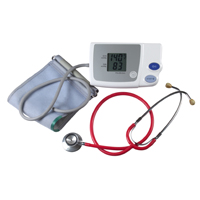Benefits
Report: IRS Needs to Improve Medical Device Excise Tax Program
The Internal Revenue Service (IRS) needs to improve its strategy to ensure accurate reporting and payment of the Medical Device Excise Tax, according to a new report publicly released today by the Treasury Inspector General for Tax Administration (TIGTA).
Aug. 20, 2014

The Internal Revenue Service (IRS) needs to improve its strategy to ensure accurate reporting and payment of the Medical Device Excise Tax, according to a new report publicly released today by the Treasury Inspector General for Tax Administration (TIGTA).
The Affordable Care Act includes an excise tax equal to 2.3 percent of the sales price for medical devices sold beginning January 1, 2013. Manufacturers, producers, and importers are responsible for collecting the excise tax and must file a Form 720, Quarterly Federal Excise Tax Return. The Joint Committee on Taxation estimated revenues from the medical device excise tax of $20 billion for Fiscal Years 2013 through 2019.
The overall objective of TIGTA’s review was to assess the IRS’s processing of tax returns reporting the medical device excise tax and its efforts to identify taxpayer noncompliance.
TIGTA found that both the number of Forms 720 filed reporting the medical device excise tax and the amount of associated revenue reported were lower than estimated.
The IRS is attempting to develop a compliance strategy to ensure that businesses are compliant with the filing and payment requirements and has taken several measures to advise medical device manufacturers of the new excise tax. However, the IRS cannot identify the population of medical device manufacturers registered with the Food and Drug Administration that are required to file a Form 720 and pay the excise tax.
In addition, processing controls do not ensure the accuracy of medical device excise tax figures reported on paper-filed Forms 720. TIGTA’s analysis of 5,107 Forms 720 processed for the first half of 2013 identified discrepancies in the amount of the excise tax and/or taxable sales amount captured from 276 paper-filed tax returns. TIGTA identified medical device excise tax discrepancies totaling almost $117.8 million when comparing the excise tax amount captured by the IRS from the Form 720 to the excise tax amount that TIGTA calculated.
Finally, the IRS erroneously assessed 219 failure-to-deposit penalties totaling $706,753 against businesses filing a Form 720 for the six months ending June 30, 2013, which was designated a penalty relief period. The IRS had reversed 133 of the 219 penalty assessments. When TIGTA alerted the IRS of the remaining 86 penalties, IRS management reversed the penalties and issued apology letters to the affected taxpayers.
“While the IRS has taken steps to educate medical device manufacturers of the medical device excise tax during implementation, it faces challenges to definitively identify manufacturers subject to the medical device excise tax reporting and payment requirements,” said J. Russell George, Treasury Inspector General for Tax Administration.
TIGTA recommended that the IRS continue refining its compliance strategy to include actions that can be taken to identify noncompliant manufacturers. Additionally, TIGTA recommended that the IRS review the 276 tax returns TIGTA identified to determine the proper excise tax owed, establish a process to verify the accuracy of the medical device excise tax amount for paper-filed Forms 720, and initiate a process to correspond with taxpayers to obtain missing taxable sales or tax amounts.
The IRS agreed with TIGTA’s recommendations and plans to consider alternative strategies for identifying noncompliant manufacturers, identify programming changes needed to improve the math verification for paper-filed Forms 720, and implement procedures for corresponding with taxpayers if the changes can be accomplished within budgetary constraints. The IRS also indicated that approximately two-thirds of the paper-filed tax returns TIGTA identified were reviewed.
The full report, in PDF format, can be viewed on the agency's website.
